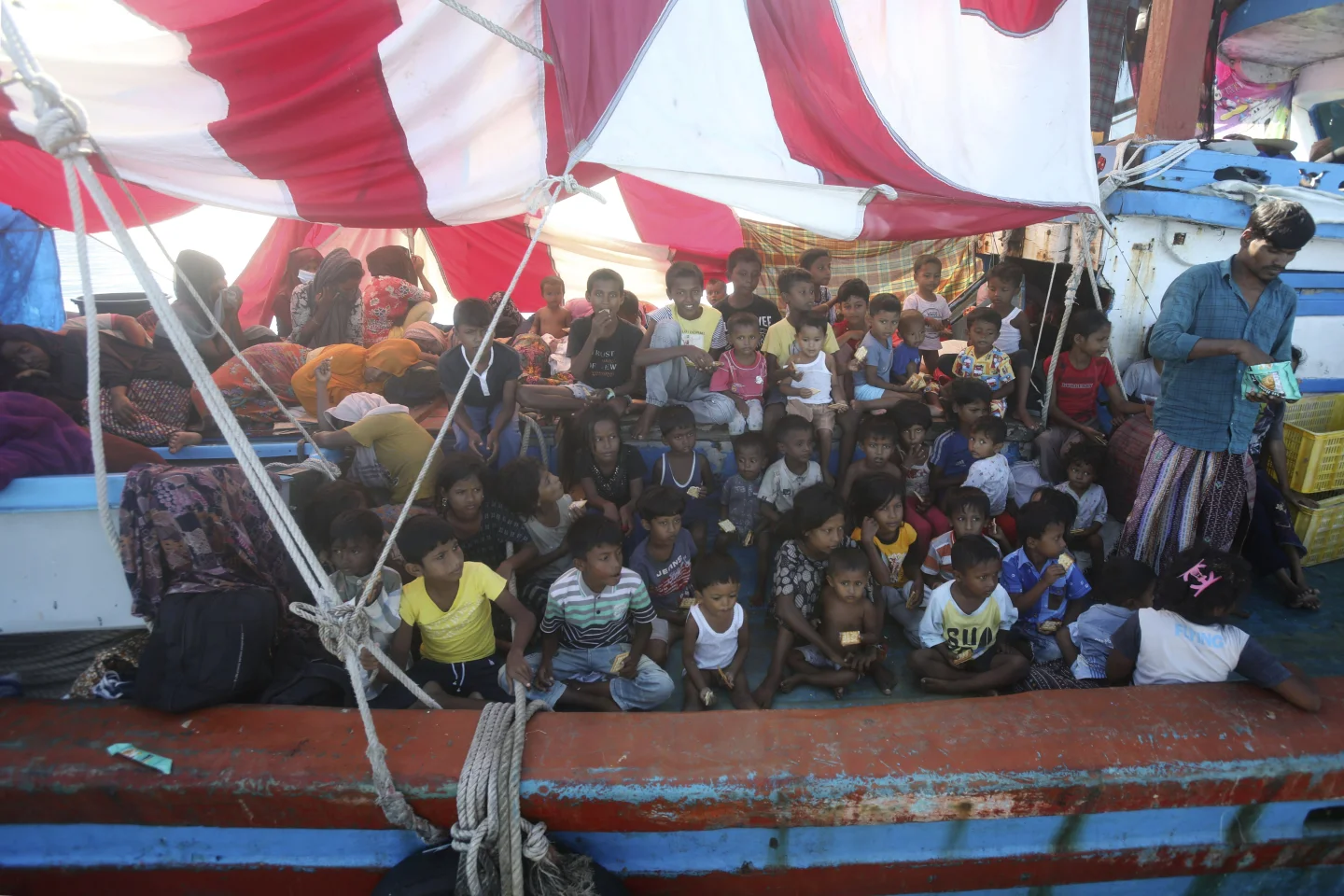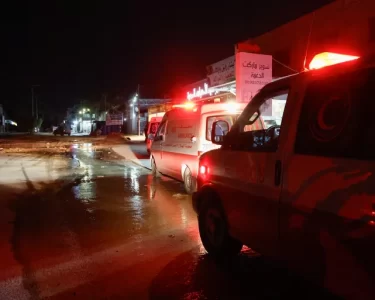A wooden boat carrying about 140 Rohingya Muslims, most of them weakened women and children, remains stranded one mile off Indonesia’s Aceh coast as local residents adamantly refuse to let them come ashore, officials said Tuesday.
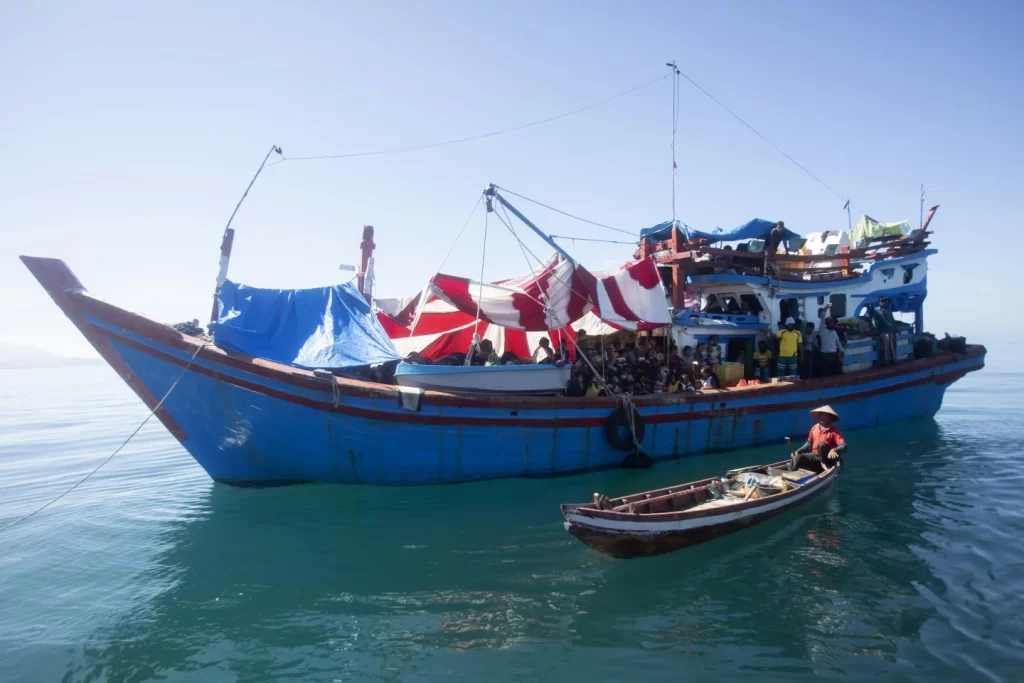
The desperate scene has unfolded since Friday, with the blue-painted vessel floating helplessly off Labuhan Haji in South Aceh district. Three refugees have already died during their nearly two-week journey from Bangladesh’s Cox’s Bazar, while eleven others have been rushed to government hospitals since Sunday as their conditions deteriorated.
Local opposition has crystallized into outright rejection, with a large banner at the seaport proclaiming: “The people of South Aceh Regency reject the arrival of Rohingya refugees in the South Aceh Regency area.” The fishing community’s resistance stems from previous incidents that they claim caused unrest.
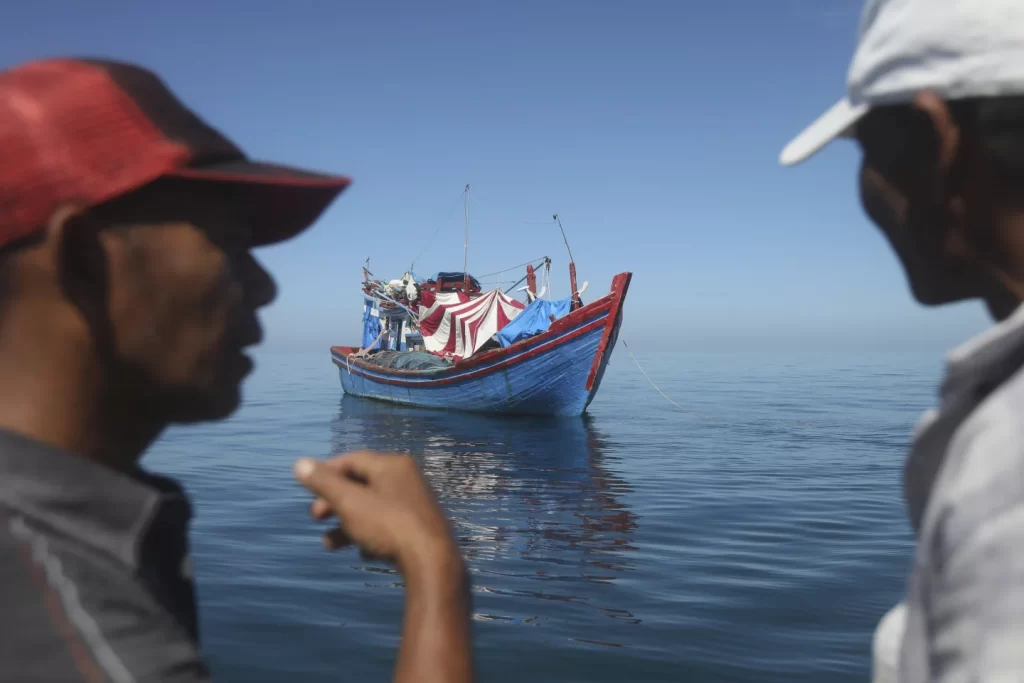
“Our community, the fishing community, refuses to let them land because of what happened in other places. They have caused unrest to local residents,” said Muhammad Jabal, the fishing community’s chief, even as his members have provided some food to the stranded refugees.
The United Nations High Commissioner for Refugees has managed to deliver supplies to the vessel, which police say originally carried 216 passengers when it departed Cox’s Bazar on October 9. Approximately 50 refugees reportedly disembarked earlier in Indonesia’s Riau province, while local authorities have arrested three people on suspicion of human trafficking.
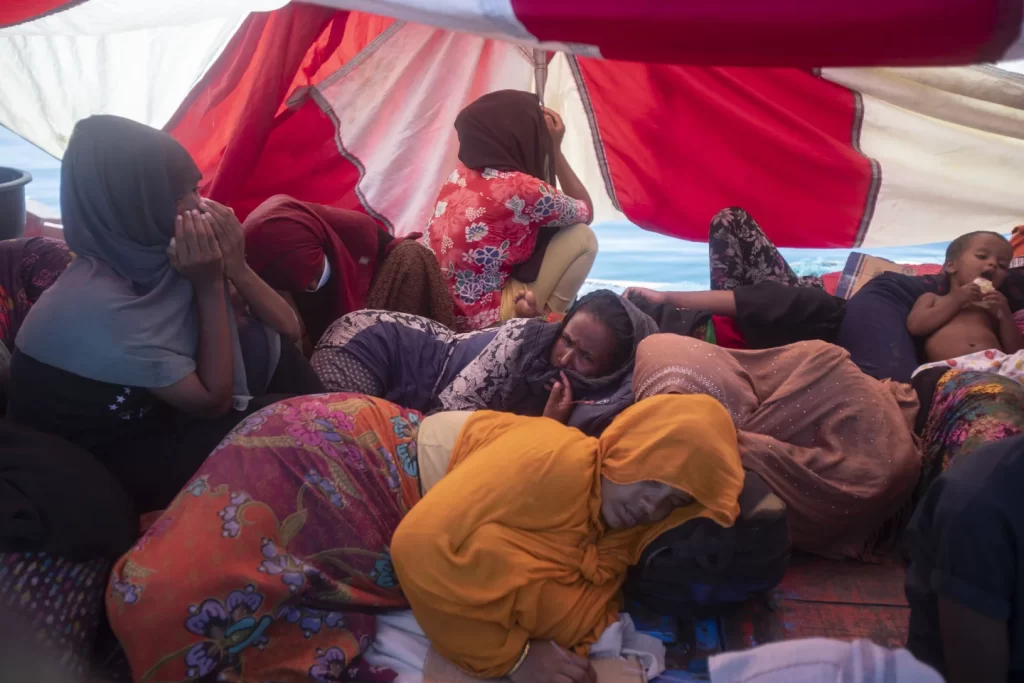
The standoff echoes growing regional tensions over refugee arrivals. Indonesia, like its neighbors Thailand and Malaysia, has not signed the UN’s 1951 Refugee Convention and maintains no legal obligation to accept refugees, though it has traditionally offered temporary shelter to those in distress.
The crisis follows a tragic incident in March when 75 Rohingya were rescued from an overturned hull off Aceh’s coast while 67 others perished, including 28 children. That disaster was marked by reports of torture aboard the vessel before it capsized.
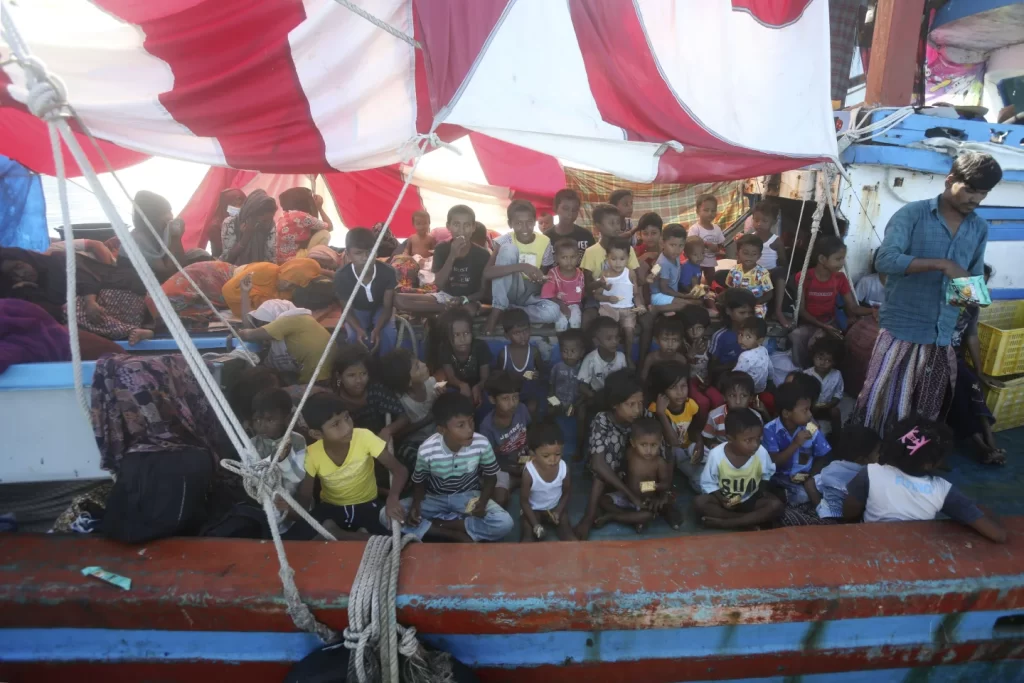
These maritime refugees represent part of a larger exodus of Rohingya Muslims, approximately one million of whom live in Bangladesh after fleeing Myanmar. The majority, about 740,000, escaped a brutal 2017 counterinsurgency campaign by Myanmar’s security forces, who faced accusations of mass rapes and killings.
As conditions aboard the wooden vessel worsen, international aid organizations continue monitoring the situation while urging an immediate resolution to prevent further casualties. The standoff has become a stark symbol of the ongoing humanitarian crisis facing Rohingya refugees, who remain caught between regional politics and basic survival.

